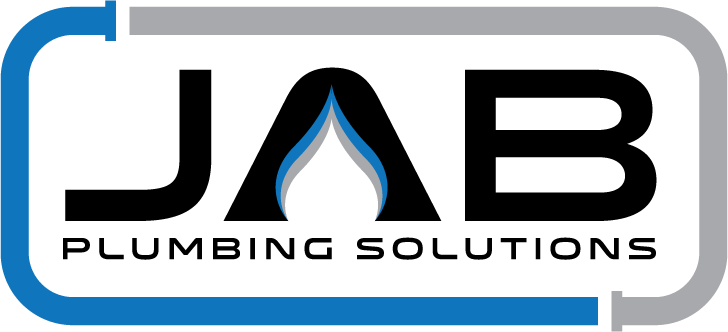The plumbing systems in your home are something you may rarely think about or may even take for granted. The functionality of plumbing is integral to a household and affects the quality of living for our family. For example, plumbing regulates the quality of water we use to cook with, bathe and clean with. It also removes waste from our home and prevents unwanted water sources from infiltrating our homes. Most critically, it can protect people from natural disasters.
Plumbing emergencies are ubiquitous and include things like burst pipes, overflowing toilets, sewer backups and flooding stormwater drains. All of these need to be dealt with as soon as possible by an emergency plumber, to protect your family and home from harm.
However, prevention is key. Although no-one plans for a plumbing emergency, most people don’t plan to prevent them either. With a little care, regular maintenance and mindfulness, you could avoid the costly visit from an emergency plumber! Read more to find our tips on how to safeguard your home…
DRAIN MINDFULNESS
One of the most effective ways to avoid a plumbing emergency is to prevent debris from going down the sink drains around the home. Sink blockages occur when debris accumulates in the pipe and prevents the water from getting through. This is worrisome because if the drain becomes completely clogged, wastewater can come back up the pipes and overflow your sink drains. Drain sieves are available for a couple of dollars from most hardware stores. This little but mighty tool can effectively filter out most debris, saving you the stress and money of emergency clogged drain repairs!
Items to Avoid…
Fats, Oils and Grease – these substances not only block up the kitchen sink but they also contribute to nasty cogs in the main sewer line. This is because as fat travels down the drainpipe, it coagulates and mimics glue; binding other items in the pipes and forming major clogs.
Hair and pet fur - if you or your pets are prone to shedding, it is important to regularly collect shedding hair during shower time. Hair is the primary source of blockages in the bathtub, shower and vanity sink drains.
Food Scraps - especially scratchy substances like egg shells, fruit pits, pasta, rice and coffee grounds which can block the plumbing pipes underneath the kitchen sink.
Lint - the laundry sink is notorious for clogging up when too much lint from the washing machine ends up down the drain.
Foreign items - using a sieve can prevent items from getting washed down the sink accidentally, including everyday things such as cotton tips, dental floss, teaspoons and other random items.
DON’T BE SO HARSH
With the internet booming with do-it-yourself knowledge, it’s tempting to take it upon yourself to repair drain blockages with de-clogging agents in your sink or shower drains. These harsh chemicals can cause deterioration and severe damage to your pipes, hence it’s generally safer to use a chemical-free approach to blockages with primitive tools like plungers.
Drop-in-toilet bowl treatments can be just as harmful as they contain harsh chemicals that may contaminate the water running through the pipe, encouraging corrosion. These chemicals are also health hazards to humans and animals as they emit nasty fumes and can cause skin irritations.
If you’re looking for a natural alternative, try pouring equal measures of baking soda and white vinegar (half a cup of each) together down the clogged drain and wait for a minimum of thirty minutes before tipping in a hot water rinse.
WET WIPES
Flushing wet-wipes down the toilet is akin to flushing money down the toilet. It’s not a matter of if but when you will need to pick up the phone and call an emergency plumber to clear them out of your pipes. We can guarantee it would be pretty quickly, so steer clear of these bad boys and throw them in the bin!
BE KIND TO YOUR TOILET
An overflowing toilet is never a pleasant situation and depending on the source of the issue or how bad the flooding is, it can be very tricky and costly to repair. Older septic systems in particular are picky with what they let down the drain and are more prone to blockages. To avoid unwanted overflows, employ some extra care and be sensitive to what you flush down the drain. Most importantly, never flush diapers, feminine products, paper towels ‘flushable wipes’ or leftover food.
LEAVE THE PIPES ALONE
If your home has exposed pipes, it might be tempting to hang clothes, wet towels from the beach, or even garden decor from them, but don’t do it! Extra weight puts stress on the joints, weakens them, and can cause a failure when you least expect it.
CLEAN OUT YOUR GUTTERS, DOWNPIPES AND STORMWATER DRAINS
Given Sydney’s recent climate thi one’s really important! If your stormwater drain gets badly blocked this could lead to flooding during the next heavy downpour. Rainwater can stagnate in pools around the yard or even under the house, causing water damage or mold issues. The primary cause of blocked stormwater drains is sediment that has washed down from the gutters or other garden debris such as grass clippings and dirt. Cleaning out the gutters and downpipes regularly and removing sticks or leaves from stormwater grates is a great preventative measure.
MAINTAIN YOUR DRAINS
Finally, taking proactive preventative action is an effective way to avoid plumbing emergencies in the home. We recommend getting your drains cleaned bi-annually or at least annually. Routine drain cleaning will flush any sediment build-up from the pipes before they can turn into major blockages.







